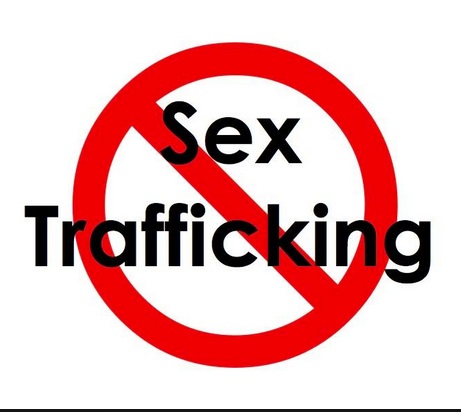We viewed portions of Nefarious, a documentary produced by the A-12 International Organization. Nefarious depicts the lives of sex trafficking victims through interviews and reenactments, highlighting that countries treat this crime very differently.
In Nefarious Merchant of Souls filmmaker Benjamin Nole takes a “journey to unveil the global sex industry,” 21st-century slavery. Moldova is the “sex trafficking engine of Europe,” exporting Eastern European girls as prostitutes all over Europe. After Communism fell in 1991, many children ended up in orphanages. Vulnerable girls aging out of these institutions are kidnapped or tricked/enticed by traffickers. The mafia uses fear and intimidation to break a girl’s body, soul and spirit until she is in total submission, incapable of crossing her master when she is sold to the highest bidder. A sophisticated network of payoffs and corruption protects sex traffickers. Nefarious also looked at Amsterdam, where prostitution is legal and regulated. Most people believe that prostitution is a girl’s “choice.”
Nefarious interviewed victims there who claimed this is not true—while many girls may be tricked into prostitution to help out a “boyfriend” they “love,” they still are brainwashed in submission to a pimp who uses violence and/or drugs to control them (Stockholm syndrome). Even when legalized, prostitution is controlled by the mafia. Men who used to sell drugs find they can make more money having a girl who services 20-30 “customers” per day work the streets for them for 6-8 years.
The mortality rate for prostitutes is 40% higher than that of other women. The sex industry itself puts out fact sheets advising prostitutes on how to avoid getting killed. Ninety-five percent of prostitutes have a prior history of sexual abuse; shame and low self-worth makes them easy to manipulate. The average age of entry into prostitution is 13 to 14.
Nefarious looks at Sweden, where purchasing sex was made a felony-level offense in 1991. Johns and pimps are arrested and prosecuted, while prostitutes are offered a chance to escape. The film contends that “to stop sex trafficking you must stop prostitution” and Sweden has created a “bad business environment for traffickers and pimps.”
Nefarious admits that rescue efforts are nearly impossible and many girls go back to prostitution to regain a sense of normalcy. Education and money will not solve this problem because prostitutes must not only be rescued physically but spiritually. Nefarious sees Christianity as a path to regaining hope and human dignity.

Kompayla Charles spoke about the crucial importance of empowering women worldwide during this decade, throwing out the patriarchal lenses of race, nationality, and religion. She became focused on women’s issues during the years she hosted a radio program “Heart and Soul.” She became an activist, which eventually led her to her work with sex trafficking victims in Thailand. She was part of an inspiring international conference in Istanbul sponsored by A-wood, which posited that “sex work is work.” Amnesty International advocates decriminalizing sex work but not sex trafficking.
Elisa Morales, who has worked with labor and sex trafficking victims for ten years, deals with the abuse that happens every day right here in Syracuse. Sex trafficking increases in winter when the river between the U.S. and Canada freezes over. Virgins are sold for $2500 or more; sex traffickers have ways to recreate physical virginity so a girl can be resold as a “virgin.”
Fifty percent of Elisa’s clients are men, boys, and those threatened with deportation. Elisa stressed the importance of having conversations with others about trafficking because it can happen anytime to anyone. She is excited that the NYS Trafficking Act, for which she lobbied hard, was signed by Gov. Cuomo. This important legislation decriminalizes young prostitutes, viewing them as victims.
During the question period, Kompayla emphasized that a crucial part of the solution is having wives/mothers educate young men to think and feel differently about sex. Elisa added that Hollywood and porn on the Internet set a tone in which sex trafficking thrives. They both agree that the key is to follow Sweden and focus on prosecuting perpetrators, not the prostitutes who are being victimized.
Aja Caban, a Safe Harbor Case Manager for Oneida/Madison Catholic Charities, said she plans to go into several health classes at Oneida High School to educate young people about human trafficking and sexual exploitation. Her program Safe Harbor and sister program H.E.L.P. serve sexually exploited, human trafficked, runaway, homeless and at-risk youth by providing bags with personal supplies and running a hotline for potential and identified victims. Safe Harbor and H.E.L.P. attempt to steer youth toward counseling, programs, case management and a healthy lifestyle.

